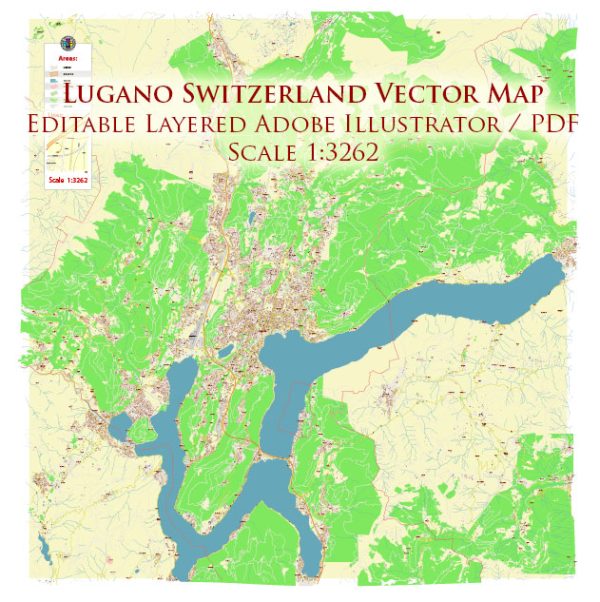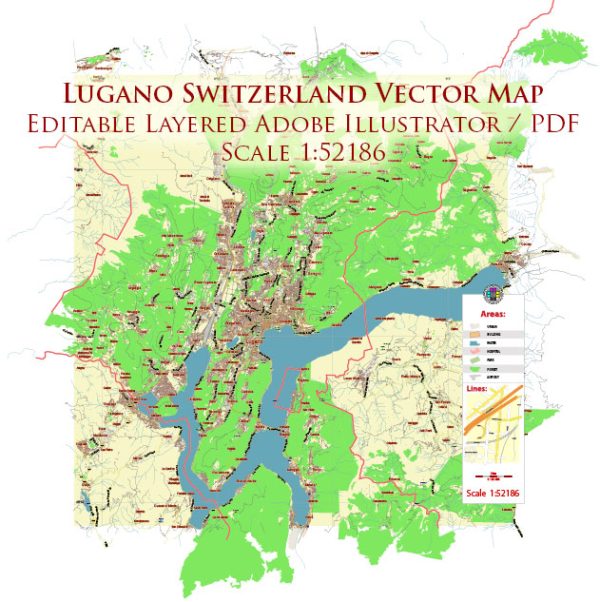Lugano, located in the Italian-speaking canton of Ticino in southern Switzerland, has a rich history of urban development that spans several centuries. The city is situated on the northern shore of Lake Lugano and is surrounded by mountains, providing a picturesque setting. Here’s a brief overview of the history of Lugano’s urban development:
- Early History: The area around Lugano has been inhabited since ancient times, with evidence of prehistoric settlements. During the Roman period, Lugano was an important center along the trade routes between Italy and northern Europe.
- Medieval Era: Lugano’s medieval history is marked by the construction of the Castle of Lugano in the 9th century. The city grew around this castle, and its strategic location contributed to its importance as a trading and military hub.
- Swiss Confederation: In the 15th century, Lugano became a part of the Swiss Confederation. This marked a shift in its political allegiance and influenced its development within the Swiss context.
- Economic Growth and Trade: Lugano’s economy flourished in the 19th century due to its role as a financial and trading center. The city’s merchants engaged in commerce with neighboring regions, and Lugano became known for its banking sector.
- Tourism and Culture: Lugano’s picturesque lakeside setting and mild climate attracted tourists in the 19th and 20th centuries. The city began to develop as a tourist destination, with the construction of hotels, parks, and cultural institutions.
- Architectural Styles: Lugano’s architecture reflects a blend of influences, including Italian, Swiss, and Mediterranean styles. The city features a mix of historic buildings, modern structures, and green spaces.
- Modernization and Infrastructure: In the 20th century, Lugano underwent significant modernization. The construction of roads, bridges, and other infrastructure projects enhanced connectivity within the city and with neighboring areas.
- Cultural Institutions and Events: Lugano is home to various cultural institutions, including museums, theaters, and galleries. The city hosts cultural events and festivals, contributing to its vibrant cultural scene.
- Contemporary Urban Planning: In recent years, Lugano has focused on sustainable urban development and environmental initiatives. Efforts have been made to preserve green spaces, enhance public transportation, and promote sustainable architecture.
- Economic Diversification: While finance remains an essential sector, Lugano has diversified its economy, embracing sectors like technology, healthcare, and education. This diversification has contributed to the city’s resilience and adaptability in the face of changing economic trends.
Lugano’s history of urban development reflects a harmonious blend of its medieval roots, economic evolution, cultural richness, and modernization efforts, making it a unique and dynamic city in Switzerland.



 Author: Kirill Shrayber, Ph.D. FRGS
Author: Kirill Shrayber, Ph.D. FRGS